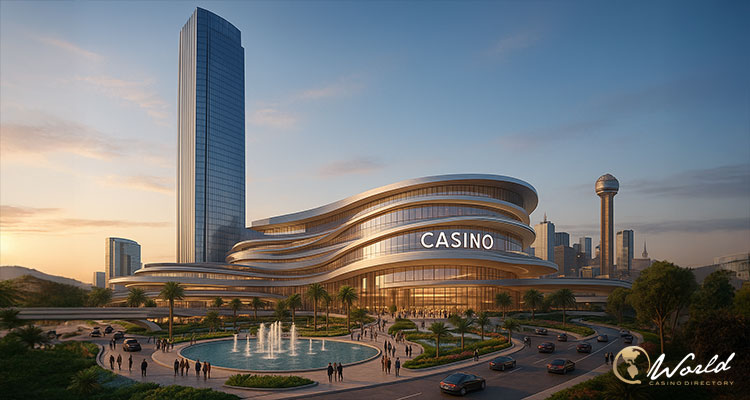For the past several years, the Las Vegas Sands Corporation has been scanning the United States for a new flagship property, and company leaders say they see only one city that fits their ambitions: Dallas. After selling its Las Vegas assets in 2022, Sands began a renewed push to establish a U.S. home base, zeroing in on North Texas as its preferred landing spot—provided the state authorizes casino gambling and local communities agree to host the development.
In an interview with NBC 5 Dallas Fort-Worth, Sands executives described their plan to create an expansive integrated resort in Dallas that would echo the scale and impact of the Marina Bay Sands in Singapore. Senior vice president Andy Abboud emphasized the uniqueness of the concept, telling the station, “Dallas is the only other place in the world that we think can match Marina Bay Sands in Singapore. It’s that simple.”
A Vision Modeled on One of the World’s Most Recognized Resorts
Marina Bay Sands has become a global benchmark for integrated resort design. Situated on more than 38 acres overlooking Singapore’s downtown bayfront, the three-tower, 55-story complex includes 1,850 luxury rooms, an internationally known rooftop infinity pool, a convention center exceeding 1 million square feet, and an 800,000-square-foot underground shopping mall. The property also houses 80 restaurants, a museum, a nightclub, and a large theater that has staged major productions such as The Lion King, Wicked, and The Phantom of the Opera.
The resort produced more than $2 billion in earnings last year and is in the midst of an $8 billion expansion that will add a 15,000-seat arena and a fourth hotel tower. Sands officials say a Dallas project would follow similar principles—an expansive, entertainment-driven complex anchored by a casino, which Abboud argues is essential to fund the surrounding amenities. As he put it, “The gambling helps pay for all the shops, restaurants and event spaces.”
Abboud added that the company aims to introduce something unprecedented in the American market, saying, “This will be a hospitality product really unknown to the United States. There is not this level of facility even in Las Vegas, Nevada.”
Legal and Local Challenges Stand in the Way
Despite the company’s enthusiasm, several substantial obstacles remain. Texas law still prohibits casino gambling, and past efforts to reverse the ban have encountered strong resistance. Longtime gambling opponent Rob Kohler, a consultant with the Christian Life Commission, noted the difficulty of the effort when Sands ramped up its lobbying campaign, saying, “[They’re] joining a long list of people in the waiting line. Some people have been in that line for 30 years.”
Community approval also poses a challenge. Earlier this year, a plan to pursue casino development at the former Texas Stadium site in Irving collapsed after residents voiced concerns over crime, social impact, and the introduction of gambling in their community. One resident, Fuad Dadabhoy, explained, “As our children get older, we want to ensure that they’re able to grow up in a city where they feel safe and that doesn’t necessarily attract some of the vices that come with the gaming industry.” Another, Charles Zipper, questioned whether developers would ultimately avoid gaming, remarking, “If they’re honest people, they’re not going to do anything if they’re not doing gaming. So if they do something, then you’ve got to question their honesty.”
Though the effort faltered, Abboud said the outcome had not weakened Sands’ long-term interest in the region. “People exercised the democratic process, which we respected,” he said, adding that the company may revisit Irving or other locations in the future.
Why North Texas Remains Sands’ Preferred Market
Sands executives cite geography, economic growth, and business climate as reasons North Texas stands out among U.S. metro areas. Abboud pointed to the state’s large population and heavy participation in underground gambling, noting, “Texas is today the largest illegal gaming market in America.”
The company has also quietly strengthened its real-estate footprint in the region. Entities tied to the Adelson family and Sands have acquired more than a dozen acres in the Dallas Design District—including the building that houses the Dallas Mavericks’ practice facility—as well as over 200 acres near State Highway 114 in Irving, across from the former Texas Stadium site.
Those ties extend to the city’s NBA franchise itself. Dr. Miriam Adelson, widow of Sands founder Sheldon Adelson, now controls the company, while her son-in-law, Patrick Dumont, serves as CEO and holds the controlling ownership stake in the Dallas Mavericks. Mark Cuban, who sold 69% of the team to Adelson in 2023, has previously floated the idea of partnering with Sands on a new arena and adjoining resort complex. Dumont has echoed the need for casino gaming to make such large-scale development viable, saying, “We feel like this is an opportunity that’s very good, not only for us but for the tourism industry as a whole. Now, as part of that, we need casino gaming because of the scale of our investments.”
As Sands continues to lobby state lawmakers and evaluate local sites such as Trinity Groves, the Design District, Fair Park, and former stadium land in Irving, company officials insist the Dallas market remains unmatched. Whether Texas voters and legislators agree may determine whether one of the world’s most renowned casino resort operators makes North Texas its new home.


